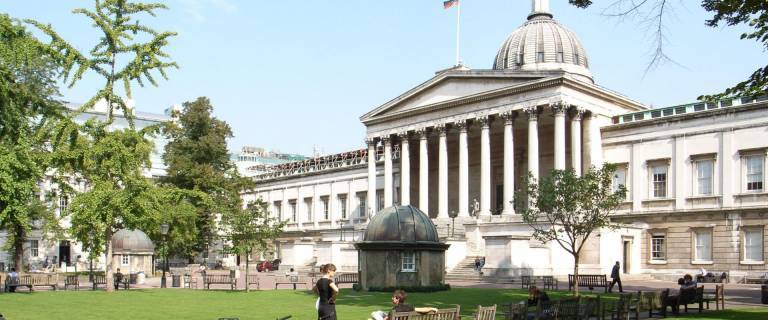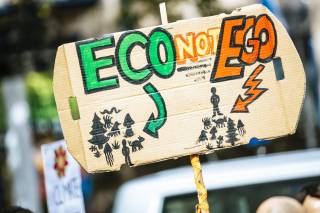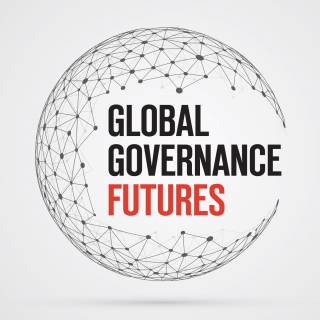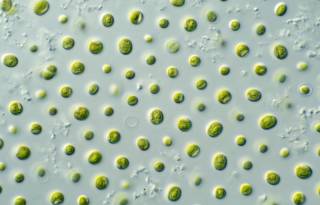Congratulations to our colleagues who have been awarded bids by the Dean’s Strategic Funds Awards to support research projects related to the Anthropocene.

The Dean’s Strategic Funds Award have awarded funding of up to £2,500 to research projects across Anthropology, Archaeology, Geography, and Political Science. Here is information on those whose aims align with UCL Anthropocene.
Greta's Generation: A Podcast Journey
Dr Kyle Herman, Global Governance Institute, Department of Political Science

How much time left until anthropocentrically-induced climate changes become irreversible? Why do we continue to finance fossil fuel companies? Are politicians and policymakers listening when we protest for a cleaner climate? What does the future of work look like? Who is doing anything about climate change? Why have we done so little to date? Can we change as a species; if so, will it be too late? These are among some of the salient questions addressed in this podcast.
How can we avoid a ‘dirty’ recovery from Covid-19?
Dr Tom Pegram, Global Governance Institute, Department of Political Science

Stay up to date with the project by visiting the GGI website and the GGI podcast Global Governance Futures (also on YouTube). You can listen to our first student Podclass here, an interview with leading global health and political economy scholars, Professor Susan K. Sell here, and read a blog on the project thematic here.
Growing sensations: a creative health pilot to improve the health and wellbeing of UCL anthropology students.
Dr Dalia Iskander, Department of Anthropology

Rapid quantification of archaeological pottery for chronology and typology
Professor Andrew Bevan, Department of Archaeology
This project's main goal is to pioneer new approaches to recording artefacts during archaeological fieldwork such as excavation or surface survey in ways that collect more, relevant, statistically-comparable information, but do not create unnecessary new bottlenecks in fieldwork situations where time, money and specialist personnel are limited. Focusing on pottery (the most ubiquitous kind of find and the one used for understanding archaeological site date, function and size in many instances) and using as high quality real-time case study a survey of the hinterland of the prehistoric site of Emborio (Chios, Greece, in collaboration with the Greek Archaeological Service), it will test semi-automatic digital methods for measuring potsherd size, abrasion, clay colour, inclusion density, inclusion colour and inclusion angularity from digital photographs and digital microscope images, that can improve on the more informal identifications and assessment traditionally made by specialists (with this project conducted under the aegis of those specialists not in antagonism to them). We will explore how straightforward it is to record such information as part of "routine" finds processing (i.e. the day after the finds were picked up) by addressing any bottlenecks that might exist in in terms of time/effort. As an indication the expected number of recovered artefacts is likely to be 5-10,000 in one season.
Covid-19 and protest dynamics in polarized societies
Dr Nils Metternich, Department of Political Science
Nils W. Metternich’s interest in the Anthropocene is driven by a bottom-up perspective on protest that aims to bring about change to global, regional, and local political behaviour, institutions, and regulation. In pursuing this research agenda, Nils W. Metternich has co-sponsored the initial funding application to the SHS Dean’s Fund to initiate the UCL Anthropocene. In addition, Nils W. Metternich has received additional funding through the SHS Dean’s Fund to study changing patterns of protest during the Covid-19 pandemic, paying particular attention to the decline of environmental protests during this time period and its consequences. Nils W. Metternich is also preparing an event series on environmental activism to understand how mobilization for change is organised.
Mammoth Projects: Amplifying the Archaeology of Early Humans in London Communities
Dr Matt Pope, Institute of Archaeology
The deep prehistories of the landscape we occupy can be a positive disruptive force in reframing identity and connection with place. Human Origins cuts across modern divisions based on race, ethnicity and culture, and challenges perceived connections to a national past based on a flawed concept of ‘ancestry’. Mammoth Projects will spear-head a strategy for engaging London school children with the deep past of the city; their own Palaeo-London. It will bring together human origins research (e.g. UCL Institute of Archaeology’s Boxgrove Project) and passionate communicators to build networks, and share resources, with educators. It will support networking between UCL Bloomsbury and Culture Lab with educators in Camden and the Olympic Park boroughs. It will interpret the Ice Age record of north London for children, especially Palaeolithic discoveries made in 1900s Hackney. Through Mammoth Projects we will develop Widening Participation bids and powerful pathways to impact strategies for UKRI applications.
Anthropocene substitutions: chemical solutions to the palm oil problem?
Dr Alice Rudge, Department of Anthropology, and Dr Véra Ehrenstein, Department of Geography

Fuel (R)Evolution in the Eurasian Landscape: Accessing relationship between metal technology and carbon emissions in the Bronze Age
Dr Miljana Radivojevic, Institute of Archaeology
This is an innovative collaborative project that tackles the topic of the Anthropocene and its origins in the past. The aims of the project are twofold: a) preparing and publishing an article in Nature/Science; and b) preparing the NERC Standard Grant proposal. It will tackle the as yet unexplored avenue of CO2 emission in the past: fuel use in the Bronze Age (BA), a time of the rapid growth of the metallurgical industry along the prehistoric Silk Roads. The focus countries are Russia and Kazakhstan.
The focus of the project is on CO2 release during the BA in the Eurasian Steppe, asking questions including: what is the estimated contribution to atmospheric CO2 from activities related to metal production during the BA? Was the advent of widespread metalworking a significant source of CO2 release during the BA? Integrating archaeometallurgy and archaeobotany to reveal fuel use and its environmental impact, the project explores three research themes: the development of metallurgy (how innovative, efficient and standardised was the process of metal production? What types of fuel were used and what would the demands have been for metal production?); scale and distribution (what was the scale of metal production and how did this affect fuel demands? How variable across the Russian and Kazakhstani steppes?); environmental effect (how did metallurgical activities and demand for fuel affect the landscape? What type of environmental impact of fuel use can we see in the preserved record?).
Research into the first large-scale metal industry combined with environmental science has not been attempted yet. This research will offer unprecedented insight into the scale of atmospheric impact of the first mass technology exchanged across the continent.
This page will be updated with new developments in the projects.
 Close
Close

